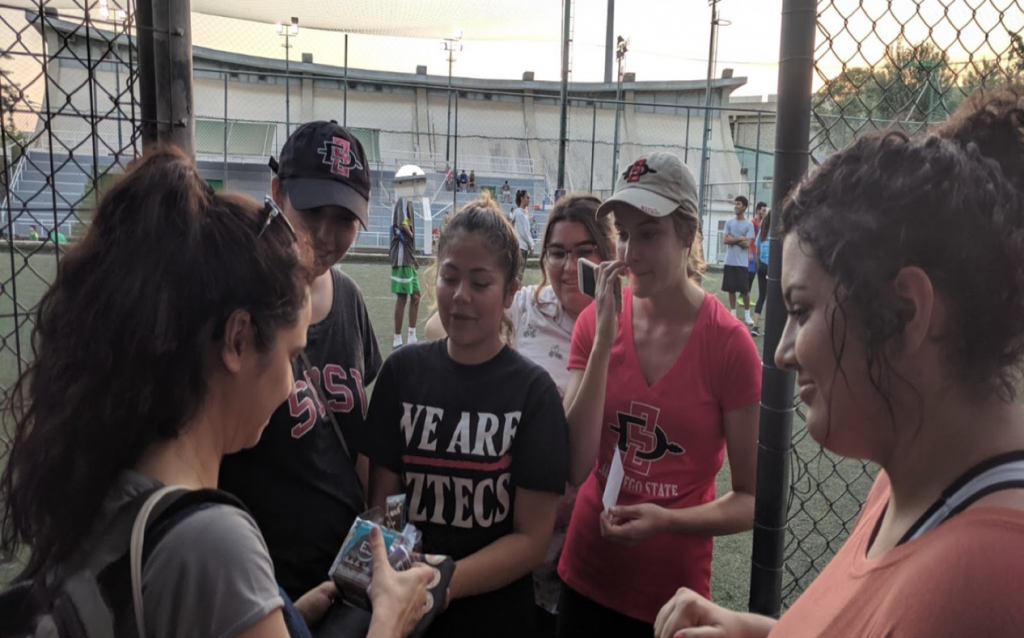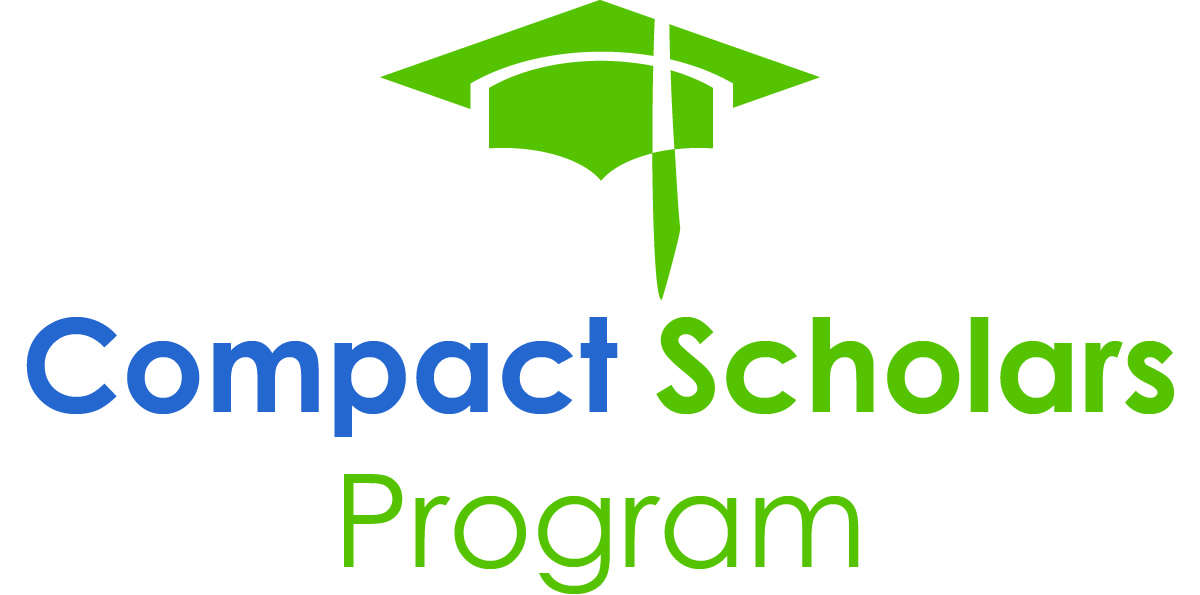Throwing it back to last semester when the very first Compact Scholars Abroad experience was led in Greece. As part of the course students had to write journal entries on their experience and one entry from each students was posted right here to the Compact Scholars Blog!
By Daniela Huerta
Hearing the soccer balls bounce off the fences surrounding the goal made my heart rate increase. Observing the seamless passes between the refugees, my palms started to get clammy, a drop of sweat found its way down my neck. As I stretch, my muscles readied to start. My white and black adidas met the ground of the small, non-regulation size soccer field near the newer Athens neighborhood near Neo Kosmos, which we had to take the metro and an outer tram to find.
The ground is like the track field back in my high school. Memories flash through my mind of all the activities I’ve done on a turf field. The black turf rising out of the ground, overpowering the plastic greenery making the field darker, attracting the sun to shine more on us. Out of the twenty of us in the SDSU Compact Study Abroad group, only nine actually volunteered to play soccer with the refugees from The Home Project–the rest opted to cheerlead. The cheerleading, it turned out, would help keep the fans, American and refugee alike, entertained as well, with their constant cheers and singing.
The Home Project coordinator that our program was assigned to was a social worker named Maria, her brown hair pulled back to mean business yet her big smile welcomed us all in the cramped white room that hosted the orientation a couple days before the soccer game. Although I only saw her for two days, every time she talked my heart warmed, she reminded me of my aunts back in San Diego.

She coordinated a soccer game on our last day in Athens with some of the refugee boys who live nearby in one of their centers. The Home Project is centered around helping the unaccompanied refugees who are minors, teens and adolescents specifically. They focus on helping them transition to a “normal” life here in Athens, Greece. Normal, as described by their social worker Maria, means they should be worrying about things normal teeenagers think about: who likes them, how they look, playing xbox. According to Maria, being a teenager and worrying about going to school, doing their homework, and learning languages are the initial goals. Our job here was no make new friends, show solidarity and to have fun! Later, as they get closer to 18, The Home Project prepares them for independence. The Home Project works with them to prep them for the next journey. They help the refugees find long-term jobs and apartments or safe living arrangements, as well as set up a support systems so they don’t feel alone. According to Maria, The Home Project will always be a safe space they are always welcome, even when they construct independent lives.
The game was planned for 7 o’clock and lasted for 2 hours. As we got closer, we heard the sound of boys yelling and a soccer ball being kicked. My fingers twitched in nervous excitement. The Home Project was fiercely protective of the young people they serve and while we had learned a lot about the organization and what they do, and we had helped the staff sort through donations and other projects, we going to meet the boys for the first time. We offered the idea of incorporating people from both teams to play on opposite sides, but the boys initially rejected the idea.
They wanted to stick together and play us as a group. As Maria told us their answer, our voices stopped, They didn’t want us here went through my head. They seemed professional, and we were a ragtag team of misfits. But about 15 minutes in, the boys decided it would be OK, and we worked to blend the teams. At first, they seemed to only pass the ball to each other, hesitant to pass the ball to any of us, but they soon realized we were 100% into the game, and they started to include us in the plays. I was a goalkeeper for three-fourths of the game, the adrenaline flowing through my body as I stopped the ball from entering the goal is how this great moment of my life started.
As I looked down the miniature soccer field, I see a mixture of SDSU students with the refugees from The Home Project. It became obvious that though the refugees themselves often spoke different languages, they had learned phrases from each other’s languages to communicate with each other on the field. Even though we didn’t speak any of these same languages, everyone was able to communicate where they were going to kick the ball with the word “friend” because everyone knows the word “friend.”
After an hour of running up and down the field chasing the ball, the halftime break was the refreshing water my mouth thirsted for. We took some time to take group pictures with them and separate group photos. The ten minutes of break slipped through our fingers as we started to warm up again. I walked back to my space on the field, the goal, I motioned for one of the boys to practice shooting so I would get some practice at stopping the ball too. Every jump, every block, we were bonding through a universal sport. They took turns trying to destroy my transparent wall. Their eyes widened every time I would stop the fast ball from going into the goal. I looked around the field to see the interactions between both groups, one group huddling together talking with each other, another playing around with each other. As time went on I didn’t see two different groups, I saw one group of adolescents playing soccer, our only worry in that moment was losing to our friends. Soccer Ball is like a globe spinning, no matter where these boys came from, somehow we are all in Greece now connecting through laughter and sport.

Recent Comments